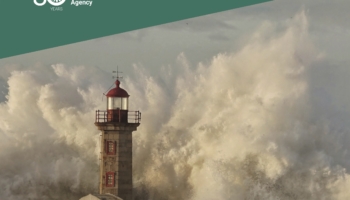The SEME Division analyses the transition to sustainability, helping identify and evaluate low carbon, sustainable strategies. The approach used is multidisciplinary, with strong use of quantitative methods based on data science, integrated modeling and experimental and behavioral economics.
Objectives
- Evaluate the low carbon transformation of the energy, land and climate sectors;
- Evaluate behavioural and traditional policy interventions for promoting pro-environmental behavior;
- Assess green innovation and its determinants;
- Study the interplay between various sustainable development goals;
- Identify robust policy strategies to climate risks and uncertainties;
- Identify technological and societal transition pathways;
- Study climate induced migration.
SEME Projects
Navigating Fiscal Challenges of the Clean Energy Transition is a project funded…
PRUDENT aspires to revolutionize agriculture and forestry by promoting sustainable practices and…
Experimental research on solar radiation modification (SRM) is controversial and feared to…
SEME Publications
Divergences between mainstream and social media discourses after COP26, and why they matter
Sanford M., Painter J.
2024, Oxford Open Climate Change, Volume 4, Issue 1 - Article number kgae006, doi: 10.1093/oxfclm/kgae006
International shipping in a world below 2 °C
Müller-Casseres E.; Leblanc F.; van den Berg M.; Fragkos P.; Dessens O.; Naghash H.; Draeger R.; Le Gallic T.; Tagomori I.S.; Tsiropoulos I.; Emmerling J., et All.
2024, Nature Climate Change, Volume 14, Issue 6, Pages 600 - 607, doi: 10.1038/s41558-024-01997-1
Strategic information avoidance, belief manipulation and the effectiveness of green nudges
D'Adda G., Gao Y.; Tavoni M.
2024, Ecological Economics, Volume 222 - August 2024 - Article number 108191, doi: 10.1016/j.ecolecon.2024.108191
SEME Models
FASST(R) is a source receptor model, an R version of the reduced-form…
WITCH (World Induced Technical Change Hybrid) is an integrated assessment model designed…
Research Units
We examine pathways of transition of the economic, environmental and technological systems. We develop and use complex models that integrate sectors and systems and delineate the key strategies compatible with climate stabilization. We carry out empirical work on the efficacy of climate policies around the world.
Leaders: Laurent Drouet and Johannes Emmerling
We assess the behavioural elements that affect individuals, corporations and institutions in the realm of environmental choices. We evaluate energy efficiency and low carbon programmes of industries and governments, both in developed and developing countries, through randomized controlled trials.
Leader: Giovanna d’Adda
We study the links between climate change and migration and estimate to what extent climate change and other environmental risks influence patterns of human migration.
Leader: Cristina Cattaneo
We identify innovation and technological pathways, strategies and policies for the low-carbon transition; we analyse the mechanisms and the role of specific policies and technological disruptions in fostering or hindering the transition toward low carbon development.
Leader: Elena Verdolini
Latest News
The poorest people within countries will suffer the most severe economic impacts of climate change: globally, a 1% increase in income decreases the costs of climate damages by 0.4%. A new study, conducted by CMCC researchers, provides an in-depth view of the economic damages caused by climate change and inequalities in the distribution of impacts between and within countries. The results highlight the need to consider adaptation differences and distributive consequences in climate policies.
By coupling the current economic impacts of climate change and their geographical distribution with different historical responsibility principles, researchers can establish possible contributions and entitlements to Loss and Damage (L&D) funding. A new article led by the CMCC and published in Nature Reviews Earth & Environment leverages developments in climate economics to inform and bolster evidence for the costs and needs associated with L&D and provides inputs to help advance international negotiations.
Europe is the fastest warming continent in the world, and climate risks are threatening its energy and food security, ecosystems, infrastructure, water resources, financial stability, and people’s health. According to the European Environment Agency’s (EEA) assessment, coordinated with CMCC and published today, many of these risks have already reached critical levels and could become catastrophic without urgent and decisive action.






